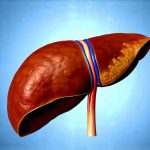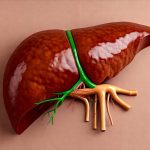The Intertwined Roles of Liver & Immunity
The liver, often considered the body’s detoxification powerhouse, plays a far more extensive role in overall health than many realize. While commonly associated with processing toxins and aiding digestion, its functions are deeply interwoven with our immune system. A healthy liver isn’t merely part of immunity; it’s fundamentally crucial for its proper functioning, providing essential components, regulating immune responses, and even directly participating in immunological defense mechanisms. Ignoring liver health can significantly compromise the body’s ability to fight off infections, heal from illness, and maintain long-term wellness. This interconnectedness is often overlooked, leading to a focus solely on bolstering immunity through supplements or lifestyle changes without addressing this vital organ.
The relationship isn’t one-way either. The immune system itself can impact liver health. Chronic inflammation caused by autoimmune responses or persistent infections can directly damage the liver over time, leading to conditions like autoimmune hepatitis or cirrhosis. This creates a feedback loop where compromised liver function further weakens immunity and increases susceptibility to illness. Understanding this dynamic interplay is essential for proactive health management and preventative care. It’s about recognizing that optimizing both organ systems together offers the most robust pathway to sustained well-being and resilience.
Liver’s Direct Contribution to Immune Function
The liver isn’t simply a passive bystander in immune processes; it actively contributes to several key aspects of immunological defense. One primary role is its production of acute phase proteins – a diverse group of molecules released during inflammation that modulate the immune response. These proteins, including C-reactive protein and mannose-binding lectin, help recognize pathogens, activate immune cells, and clear cellular debris. Without adequate liver function, the body’s ability to mount an effective acute phase response is diminished, leaving it vulnerable to overwhelming infection. Beyond these proteins, the liver synthesizes many of the building blocks necessary for immune cell development and function – amino acids, vitamins (like D and E), and essential fatty acids are all crucial components in a thriving immune system.
Another critical contribution lies in its role as a filter and clearinghouse. The liver filters blood coming from the digestive tract, removing bacteria, viruses, and other harmful substances before they can circulate throughout the body. Specialized immune cells residing within the liver – Kupffer cells – are part of the mononuclear phagocyte system, engulfing and destroying pathogens directly. This first-line defense prevents widespread infection and reduces the burden on the rest of the immune system. A compromised liver struggles to perform this vital filtering function, allowing more harmful substances to enter circulation, potentially triggering systemic inflammation and weakening immunity.
Furthermore, the liver produces bile, which isn’t just for digestion. Bile acids play a role in modulating gut microbiota – the community of microorganisms living in our digestive tract. A healthy gut microbiome is now recognized as integral to immune function, with imbalances linked to autoimmune diseases and increased susceptibility to infection. By influencing the composition of gut bacteria through bile production, the liver indirectly supports immune health.
The Gut-Liver-Immune Axis
The connection between the liver, gut, and immunity is often described as the gut-liver-immune axis. This bidirectional communication network highlights how disruptions in one area can cascade into problems in others. An unhealthy diet, stress, or antibiotic use can disrupt the gut microbiome, leading to increased intestinal permeability – often called “leaky gut”. When the gut lining becomes more permeable, bacterial toxins and undigested food particles can leak into the bloodstream, triggering an immune response and placing a significant burden on the liver as it attempts to detoxify these substances.
This constant influx of toxins can lead to chronic inflammation in the liver, damaging its cells and impairing its function. As the liver’s capacity diminishes, it struggles to effectively filter blood and produce essential immune components. This creates a vicious cycle where gut dysbiosis leads to liver dysfunction which further weakens immunity and exacerbates gut issues. Supporting gut health through dietary changes (like increasing fiber intake), stress management techniques, and minimizing antibiotic use is therefore crucial for maintaining both liver and immune function.
Liver Detoxification & Immune Support
The term “detox” often carries misleading connotations, but the liver’s natural detoxification processes are undeniably vital for immune support. The liver doesn’t just eliminate toxins; it transforms them into less harmful substances that can be excreted by the kidneys or bile. This process requires a range of nutrients and enzymes to function optimally. Deficiencies in key vitamins (like B vitamins, vitamin C, and vitamin E) and minerals (like selenium and zinc) can impair detoxification pathways, allowing toxins to accumulate and overwhelm the immune system.
Supporting liver detoxification isn’t about restrictive diets or harsh cleanses. It’s about providing the nutrients it needs to function effectively, minimizing exposure to environmental toxins (pesticides, pollutants), and reducing alcohol consumption. The liver also relies on specific amino acids for phase II detoxification – a process where toxins are conjugated with other molecules to make them water-soluble for excretion. Foods rich in sulfur-containing amino acids, such as cruciferous vegetables (broccoli, cauliflower) and allium vegetables (garlic, onions), can support this important stage of detoxification.
Inflammation & Liver-Immune Crosstalk
Chronic inflammation is a common thread linking many chronic diseases, including autoimmune conditions, cardiovascular disease, and cancer. The liver plays a central role in regulating the inflammatory response, but it’s also susceptible to damage from excessive or prolonged inflammation. When the immune system is constantly activated – due to factors like chronic infections, gut dysbiosis, or environmental toxins – it can trigger an overactive inflammatory response that damages liver cells.
This leads to non-alcoholic fatty liver disease (NAFLD) and its more severe form, non-alcoholic steatohepatitis (NASH). These conditions are characterized by inflammation and fat accumulation in the liver, which further impairs its function and weakens immunity. Conversely, a healthy liver helps regulate inflammatory pathways, preventing excessive inflammation that can damage tissues throughout the body. This delicate balance highlights the importance of addressing underlying causes of chronic inflammation – such as diet, stress, and gut health – to protect both liver and immune function. A focus on anti-inflammatory foods (berries, fatty fish, olive oil) and lifestyle practices (regular exercise, adequate sleep) can significantly contribute to a healthier inflammatory profile.


















